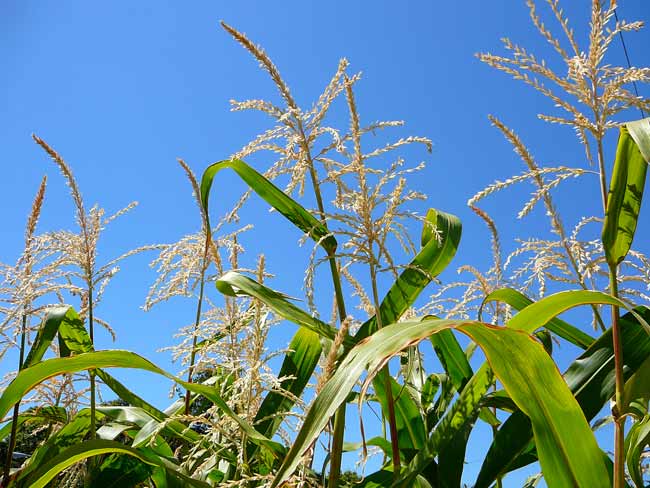Study: Biofuel Threatens Water Supplies

The production of bioethanol may use up to three times as much water as previously thought, a new study finds, becoming the latest work that could burst the biofuel bubble.
A gallon of ethanol may require up to more than 2,100 gallons of water from farm to fuel pump, depending on the regional irrigation practice in growing corn, according to the study detailed in the April 15 issue of journal Environmental Science & Technology.
But the water usage isn't quite so high everywhere: A dozen states in the Corn Belt consume less than 100 gallons of water per gallon of ethanol, making them better suited for ethanol production, the study found.
"The results highlight the need to take regional specifics into account when implementing biofuel mandates," the authors wrote.
Bioethanol, typically made from plant sources such as corn or switch grass, is often touted as a clean-burning alternative to gasoline or other fossil fuels, which give off significant amounts of carbon dioxide and other pollutants.
Other studies have questioned the benefits of biofuels, noting that they may require more energy in production than they provide; they may not reduce greenhouse gas emissions as much as hoped; and the fertilizers required to grow the crops to make the fuel may exacerbate oceanic dead zones as a result of chemical runoff into streams.
Annual production of bioethanol currently sits about 9 billion gallons a year, but many experts expect this number to rise, sparking concerns over water usage in the production process, particularly in areas where there are already water shortages.
Get the world’s most fascinating discoveries delivered straight to your inbox.
Previous studies estimated that a gallon of corn-based bioethanol requires the use of 263 to 784 gallons of water from the farm to the fuel pump. Butt these estimates failed to account for widely varied regional irrigation practices, the authors of the new study said.
For the new study, Sangwon Suh of the University of Minnesota in St. Paul, along with his colleagues, made a new estimate of bioethanol's impact on the water supply using detailed irrigation data from 41 states. The water requirements of the bioethanol produced in 2007 was possibly as high as 861 billion gallons of water from the corn field to the fuel pump, the researchers found.
The study was funded in part by USDA/CSREES and the U.S. Department of Energy and the Legislative Citizen’s Commission on Minnesota Resources.
- Video – The Next Step in Alternative Fuel
- Power of the Future: 10 Ways to Run the 21st Century
- The Energy Debates: Ethanol
 Live Science Plus
Live Science Plus






